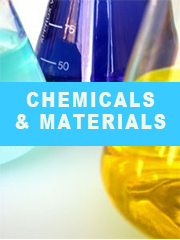Report overview
This report studies the EVA Resin market, Ethylene-vinyl acetate (EVA) resin, also known as PEVA, is the copolymer of ethylene and vinyl acetate. The weight percent vinyl acetate (VA) usually varies from 10 to 40%, with the remainder being ethylene.
This report aims to provide a comprehensive presentation of the global market for Ethylene-vinyl Acetate (EVA) Resin, with both quantitative and qualitative analysis, to help readers develop business/growth strategies, assess the market competitive situation, analyze their position in the current marketplace, and make informed business decisions regarding Ethylene-vinyl Acetate (EVA) Resin. This report contains market size and forecasts of Ethylene-vinyl Acetate (EVA) Resin in global, including the following market information:
Global Ethylene-vinyl Acetate (EVA) Resin Market Revenue, 2018-2023, 2024-2029, ($ millions)
Global Ethylene-vinyl Acetate (EVA) Resin Market Sales, 2018-2023, 2024-2029, (K MT)
Global top five Ethylene-vinyl Acetate (EVA) Resin companies in 2022 (%)
The global Ethylene-vinyl Acetate (EVA) Resin market was valued at US$ 3957.4 million in 2022 and is projected to reach US$ 4856.2 million by 2029, at a CAGR of 3.0% during the forecast period. The influence of COVID-19 and the Russia-Ukraine War were considered while estimating market sizes.
China is the world's largest market for EVA resins, with a market share of over 30%, followed by North America and South Korea, each with a market share of about 10%.
DuPont (US), Hanwha Total (KR), FPC (TW), Sinopec Beijing Yanshan (CN) and USI (TW) are the major producers, with the top three accounting for approximately 25% of the Total market.
We surveyed the Ethylene-vinyl Acetate (EVA) Resin manufacturers, suppliers, distributors and industry experts on this industry, involving the sales, revenue, demand, price change, product type, recent development and plan, industry trends, drivers, challenges, obstacles, and potential risks.
Total Market by Segment:
Global Ethylene-vinyl Acetate (EVA) Resin Market, by Type, 2018-2023, 2024-2029 ($ Millions) & (K MT)
Global Ethylene-vinyl Acetate (EVA) Resin Market Segment Percentages, by Type, 2022 (%)
Tubular EVA
Autoclave EVA
Other Process
Global Ethylene-vinyl Acetate (EVA) Resin Market, by Application, 2018-2023, 2024-2029 ($ Millions) & (K MT)
Global Ethylene-vinyl Acetate (EVA) Resin Market Segment Percentages, by Application, 2022 (%)
Film
Adhesive and Coating
Molding Plastics
Foaming Materials
Other Applications
Global Ethylene-vinyl Acetate (EVA) Resin Market, By Region and Country, 2018-2023, 2024-2029 ($ Millions) & (K MT)
Global Ethylene-vinyl Acetate (EVA) Resin Market Segment Percentages, By Region and Country, 2022 (%)
North America
US
Canada
Mexico
Europe
Germany
France
U.K.
Italy
Russia
Nordic Countries
Benelux
Rest of Europe
Asia
China
Japan
South Korea
Southeast Asia
India
Rest of Asia
South America
Brazil
Argentina
Rest of South America
Middle East & Africa
Turkey
Israel
Saudi Arabia
UAE
Rest of Middle East & Africa
Competitor Analysis
The report also provides analysis of leading market participants including:
Key companies Ethylene-vinyl Acetate (EVA) Resin revenues in global market, 2018-2023 (Estimated), ($ millions)
Key companies Ethylene-vinyl Acetate (EVA) Resin revenues share in global market, 2022 (%)
Key companies Ethylene-vinyl Acetate (EVA) Resin sales in global market, 2018-2023 (Estimated), (K MT)
Key companies Ethylene-vinyl Acetate (EVA) Resin sales share in global market, 2022 (%)
Further, the report presents profiles of competitors in the market, key players include:
DuPont
ExxonMobil (US)
FPC (TW)
Hanwha Total (KR)
USI (TW)
Sinopec Beijing Yanshan (CN)
Sipchem (SA)
BASF-YPC (CN)
Braskem (BR)
Westlake (US)
TPI Polene (TH)
LG Chem (KR)
Celanese (US)
Arkema (FR)
Repsol (ES)
LyondellBasell (NL)
Sumitomo Chem (JP)
Levima/Haoda Chem (CN)
Lotte Chem (KR)
Total (FR)
Tosoh (JP)
Versalis/Eni (IT)
Ube (JP)
Huamei Polymer (CN)
NUC Corp (JP)
Sumsung Total (KR)
Outline of Major Chapters:
Chapter 1: Introduces the definition of Ethylene-vinyl Acetate (EVA) Resin, market overview.
Chapter 2: Global Ethylene-vinyl Acetate (EVA) Resin market size in revenue and volume.
Chapter 3: Detailed analysis of Ethylene-vinyl Acetate (EVA) Resin manufacturers competitive landscape, price, sales and revenue market share, latest development plan, merger, and acquisition information, etc.
Chapter 4: Provides the analysis of various market segments by type, covering the market size and development potential of each market segment, to help readers find the blue ocean market in different market segments.
Chapter 5: Provides the analysis of various market segments by application, covering the market size and development potential of each market segment, to help readers find the blue ocean market in different downstream markets.
Chapter 6: Sales of Ethylene-vinyl Acetate (EVA) Resin in regional level and country level. It provides a quantitative analysis of the market size and development potential of each region and its main countries and introduces the market development, future development prospects, market space of each country in the world.
Chapter 7: Provides profiles of key players, introducing the basic situation of the main companies in the market in detail, including product sales, revenue, price, gross margin, product introduction, recent development, etc.
Chapter 8: Global Ethylene-vinyl Acetate (EVA) Resin capacity by region & country.
Chapter 9: Introduces the market dynamics, latest developments of the market, the driving factors and restrictive factors of the market, the challenges and risks faced by manufacturers in the industry, and the analysis of relevant policies in the industry.
Chapter 10: Analysis of industrial chain, including the upstream and downstream of the industry.
Chapter 11: The main points and conclusions of the report.
